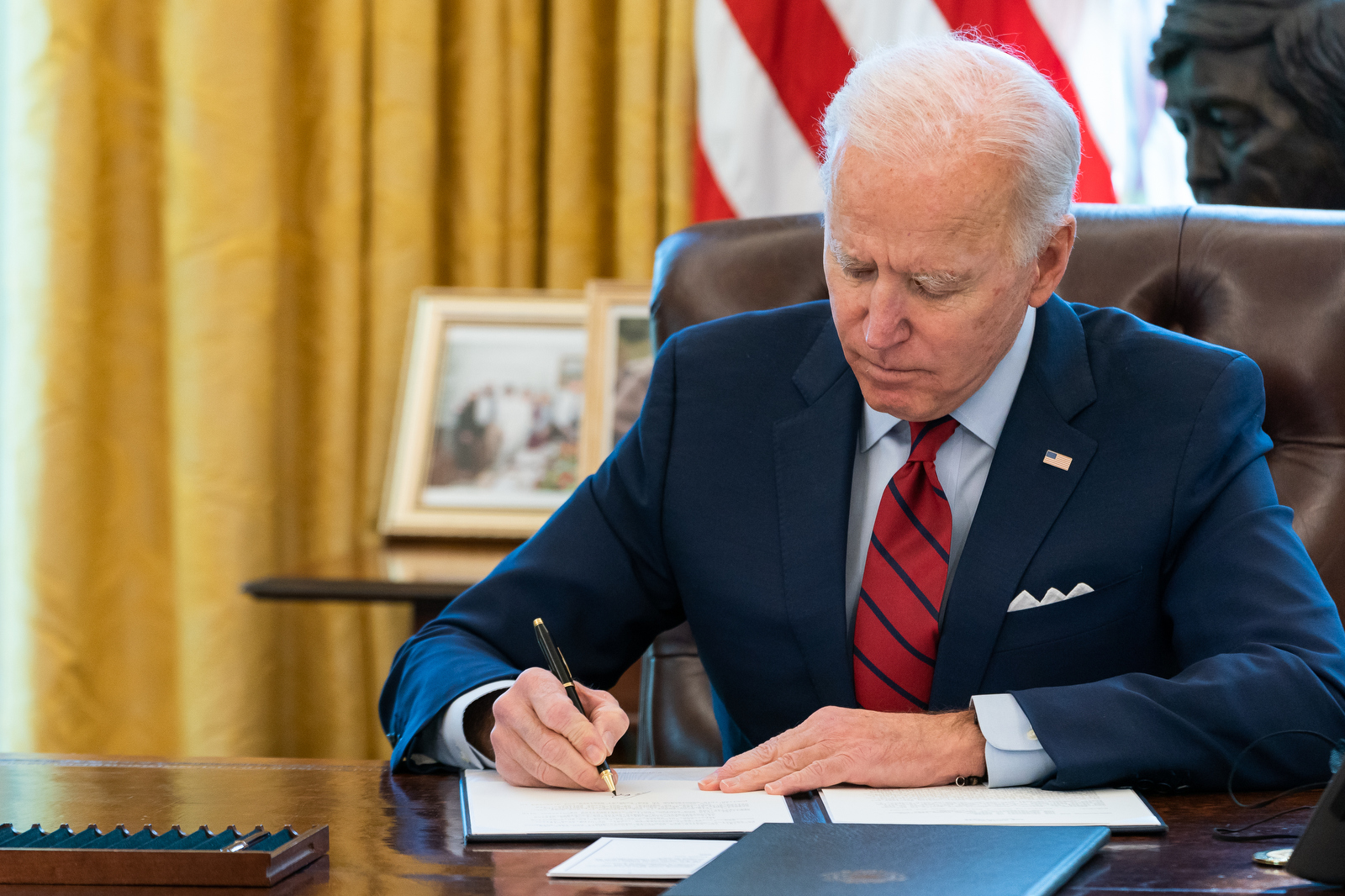Biden Signals Compromise on Bill with Billions for Broadband
Money would be tied to speed, price and competition

The smarter way to stay on top of the multichannel video marketplace. Sign up below.
You are now subscribed
Your newsletter sign-up was successful
The White House says it has struck a deal with House Democrats and Republicans on a massive infrastructure bill that includes $65 billion for broadband tied to speed, affordability and competition.
The President signaled the bill will get consideration in the Senate and that the broadband investment will ensure that "every American has access to reliable, high-speed internet."
"Today’s agreement shows that we can come together to position American workers, farmers, and businesses to compete and win in the 21st century," the White House said.
Saying broadband was a necessity for everything from jobs to school to healthcare but that 30 million people live where there is "no broadband infrastructure that provides minimally acceptable speeds," particularly in rural areas, the White House said the $65 billion will be a historic investment in deployment.
As to the ties to price and speed and competition, it said it will 1) require recipients of all those billions to offer "a low-cost affordable plan"; 2) create "price transparency" so consumers can comparison shop, and 3) give them more to compare by "boosting competition in areas where existing providers aren’t providing adequate service."
The compromise bill also incorporates the Digital Equity Act, it says it will end "digital redlining," and create a permanent program to help low-income residents access the internet and get the devices required. Currently, the Emergency Broadband Benefit subsidy provides $3.2 billion for both access and devices for low-income residents, but only during the duration of the pandemic.
Also Read: More Than Four Million Tap Into Broadband Benefit
The smarter way to stay on top of the multichannel video marketplace. Sign up below.
The Digital Equity Act, whose goal is to provide broadband access tools and technologies to "traditionally overlooked communities," creates an annual $120 million formula grant program for states, the District of Columbia, and Puerto Rico, to create individualized "digital equity plans," plus another annual $120 million competitive grant program for similar projects by groups, coalitions, and communities of interest.
It also charges the National Telecommunications and Information Administration (NTIA), the Administration's chief communications policy adviser, with studying the results and "providing policymakers at the local, state, and federal levels with detailed information about which projects are most effective."
The White House says the billions for broadband and many other infrastructure projects in the package will be paid for with a combination of "redirecting unspent emergency relief funds, targeted corporate user fees, strengthening tax enforcement when it comes to crypto currencies, and other bipartisan measures, in addition to the revenue generated from higher economic growth as a result of the investments."
The President called the infrastructure package a bipartisan, blue collar, blueprint for rebuilding America.
Getting broadband to Americans was "long overdue," said Department of Transportation Secretary Pete Buttigieg.
“Investments in digital technologies and infrastructure are critical to the United States’ economic success, future growth, and global leadership,” said Andy Halataei, EVP of government affairs for global tech trade association ITI. “We’re encouraged by this bipartisan progress and look forward to learning more about the details of the deal, specifically efforts to close the digital divide and expand internet access. Our industry will continue to work with our partners in the administration and Congress to advance these critical efforts.”
“NATE welcomes the bipartisan infrastructure agreement that has been reached between Senators and President Biden, which provides an unprecedented $65 billion in funding for broadband deployment,” stated Todd Washam, director of government relations for NATE: The Communications Infrastructure Contractors Association. “The Association is also pleased that the agreement includes provisions for wireless firms to be eligible for deployment funding. This historic investment will help fulfill one of NATE’s priorities, closing the digital divide, while delivering reliable Internet and communications services to rural, unserved and underserved communities. NATE supports swift action by the Senate and urges the House of Representatives to pass this important infrastructure package as soon as possible."
Sen. Mitt Romney (R-Utah) said he was proud to have helped negotiate the bill, which he said would expand broadband into rural Utah.
The fact that boatloads of money will be available at the state and local level was not lost on the Naional Association of Counties.
“We are also pleased to see historic investments in high-speed internet as counties advance efforts to expand access to affordable broadband in every corner of the country," said NACo Executive Directors Matthew Chase. “America’s counties are ready to work with our bipartisan congressional partners and the Biden-Harris administration to pass this much-needed legislation.”
Computer companies were cheering the investment as well.
"The Computer & Communications Industry Association has long advocated for policies that will close the digital divide and bring broadband access to more Americans," said CCIA VP of public policy, Arthur Sidney. "The pandemic has demonstrated how American consumers rely on connectivity for remote learning, working, and access to services. We applaud the bipartisan infrastructure package for its significant investments in broadband for all Americans.”
Contributing editor John Eggerton has been an editor and/or writer on media regulation, legislation and policy for over four decades, including covering the FCC, FTC, Congress, the major media trade associations, and the federal courts. In addition to Multichannel News and Broadcasting + Cable, his work has appeared in Radio World, TV Technology, TV Fax, This Week in Consumer Electronics, Variety and the Encyclopedia Britannica.

